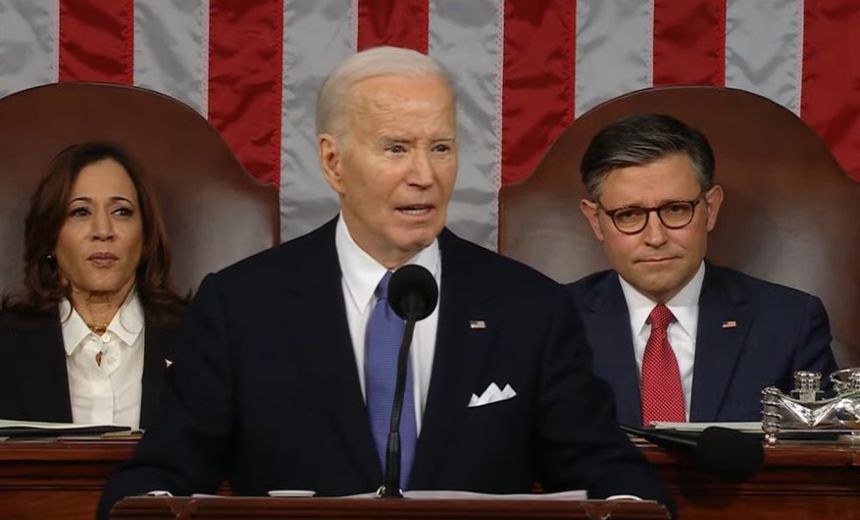Artificial Intelligence & Machine Learning
,
Next-Generation Technologies & Secure Development
US President Urges Congress to Harness AI While Protecting ‘From Its Peril’

Artificial intelligence made a walk-on cameo during Thursday’s State of the Union address by U.S. President Joe Biden when the American commander in chief called on lawmakers to ban voice impersonations generated by artificial intelligence.
See Also: User Entity & Behavior Analytics 101: Strategies to Detect Unusual Security Behaviors
“Ban AI voice impersonation,” Biden said during the final minutes of his more than an hour-long speech. The entreaty came just after the president called for Congress to “harness the promise of AI and protect us from its peril” and pass privacy legislation extending online privacy protection for children – items Biden said are elements of his Unity Agenda.
Biden previously called on Congress to pass bipartisan legislation strengthening tech regulation when he signed an October executive order meant to ensure AI is safe, secure and trustworthy (see: White House Issues Sweeping Executive Order to Secure AI). He urged lawmakers to prevent major technology corporations from collecting personal data on children and teenagers and to ban firms from targeting advertisements to children.
“We face a genuine inflection point in history, one of those moments where the decisions we make in the very near term are going to set the course for the next decades,” Biden said at the time, adding: “There’s no greater change that I can think of in my life than AI presents.”
In January, White House Special Advisor on AI Ben Buchanan said federal agencies are on track to meet a series of critical deadlines for implementing the executive order, which aims to establish new standards for the use of AI systems (see: White House Says Agencies on Track to Meet January AI Goals).
Biden’s Thursday call for banning voice impersonation didn’t come in a vacuum. The Federal Trade Commission in February launched a rule-making process that would give the agency new authority to sue in federal court any providers that facilitate impersonation fraud (see: US FTC Proposes Penalties for Deepfake Impersonators).
Multiple researchers and analysts have warned that bad actors will likely use AI tools to create disinformation on a daily basis in the months leading up to the November U.S. presidential election (see: AI Disinformation Likely a Daily Threat This Election Year).
Americans received a foretaste of what that could look like when robocalls mimicking the voice of Biden, generated by AI, urged voters to stay home during the New Hampshire primary. A Democratic consultant working for a long-shot challenger to Biden for the nomination in late February took responsibility for the calls, telling reporters that he did so to draw attention to the threat.
The Federal Communications Commission shortly afterward banned unsolicited robocalls that use voices generated by artificial intelligence (see: Breach Roundup: US Bans AI Robocalls).
